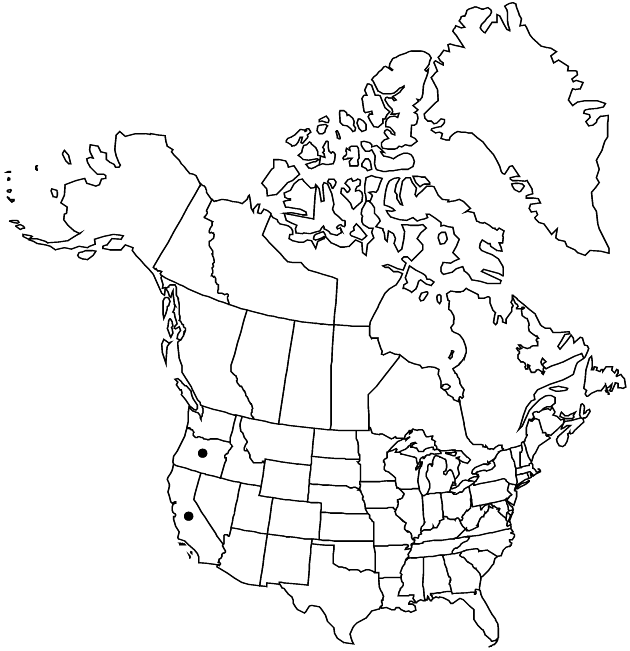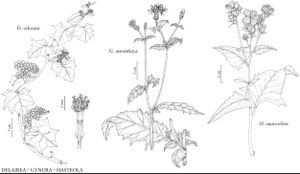Difference between revisions of "Delairea odorata"
Ann. Sci. Nat., Bot., ser. 3, 1: 380. 1844.
Synonyms: Senecio mikanioides Otto ex Walpers
Treatment appears in FNA Volume 20. Treatment on page 609.
FNA>Volume Importer |
FNA>Volume Importer |
||
| Line 51: | Line 51: | ||
|publication year=1844 | |publication year=1844 | ||
|special status= | |special status= | ||
| − | |source xml=https://jpend@bitbucket.org/aafc-mbb/fna-data-curation.git/src/ | + | |source xml=https://jpend@bitbucket.org/aafc-mbb/fna-data-curation.git/src/f6b125a955440c0872999024f038d74684f65921/coarse_grained_fna_xml/V19-20-21/V20_1366.xml |
|tribe=Asteraceae tribe Senecioneae | |tribe=Asteraceae tribe Senecioneae | ||
|genus=Delairea | |genus=Delairea | ||
Revision as of 19:41, 24 September 2019
Stems trailing or climbing. Leaves: petioles about equaling blades, sometimes with pair of stipule-like lobes at bases; blades ± orbiculate or polygonal, 3–8(–12) × 3–8(–12) cm, lobes or teeth (3–)5–9+, acute. Heads (10–)20–40. Calyculi: bractlets 0.2–1.5+ mm. Phyllaries 3–4 mm. Pappi surpassing involucres by 2–3 mm. 2n = 20.
Phenology: Flowering year round, mostly Nov–Feb.
Habitat: Shady, disturbed sites near the coast
Elevation: 0–200(–300) m
Distribution

Calif., Oreg., South Africa, also introduced in Australia.
Discussion
Delairea odorata escaped from cultivation and is now an invasive weed in shady, disturbed sites near the coast.
Selected References
None.
Lower Taxa
None.
